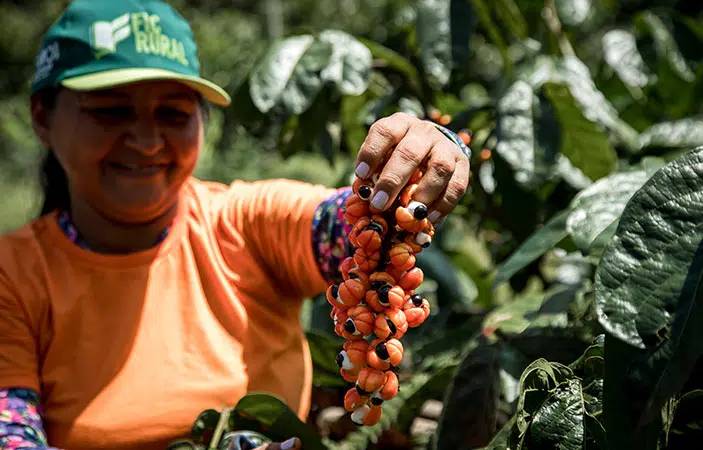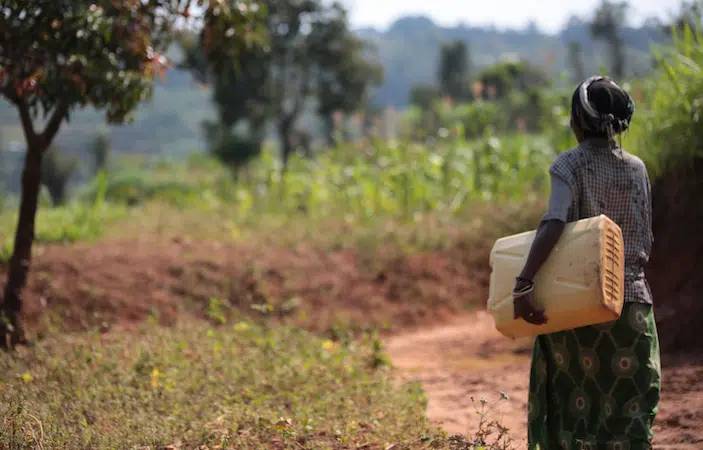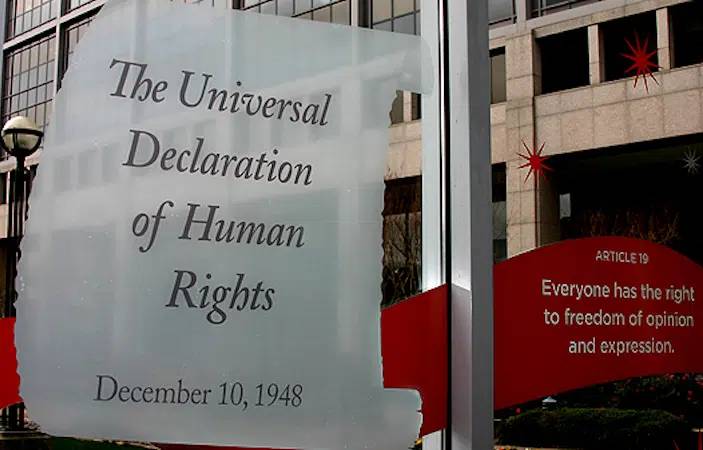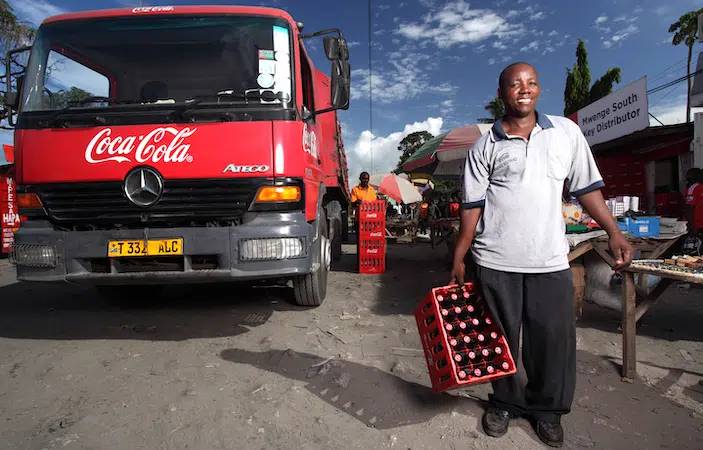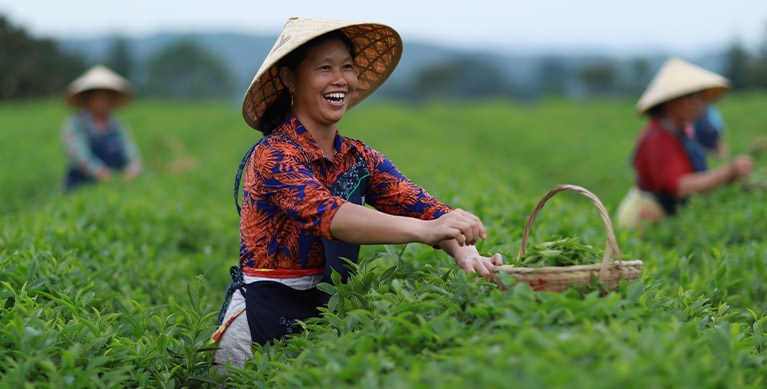
OUR COMMITMENT TO HUMAN RIGHTS
Human Rights are a core value embedded in our company’s purpose: to refresh the world and make a difference.
Our vision is to craft the brands and choice of drinks that people love, to refresh them in body and spirit, and do it in ways that create a more sustainable business and a better shared future that makes a difference in people’s lives, communities and our planet.
The Coca‑Cola Company is committed to the improvement and achievement of human rights everywhere we operate. We respect our role in society and strive to operate in a way that creates an overall positive impact.
Respect for Human Rights is Fundamental to our Global Community
Framework for Policies and Programs
GLOBAL ISSUES
Internal and external consultation processes identified these 12 salient human rights issues associated with the company’s activities and business relationships:
- Safety and health of all workers, security, right to life
- Equality nondiscrimination and related issues/risks
- Child labor
- Forced migrant labor/forced labor of seasonal workers
- Freedom of association
- Access to water, environmental pollution, wastewater
- Working hours
- Healthy lifestyles
- Land rights
- Product safety/quality
- Rights linked to sponsorships
- Right to privacy
These issues are not new for us. Although the company has engaged in all these topics throughout our human rights journey, our extensive mapping and consultation process confirmed that much of our human rights focus is appropriate, equipping us to move in a more strategic and prioritized direction in addressing these issues. In addition, the regional consultations gave us a deeper view into regional risks profiles.
ACTIVE STEPS
We continuously strive to demonstrate our commitment through our sustainability and community initiatives, as well as our efforts to identify and remedy human rights impacts. This starts with our own people, making sure they have safe, supportive and respectful workplaces where the dignity of every associate is recognized and honored. Although respect for human rights starts in our company, it extends throughout the system and in the communities in which we operate.
The Coca‑Cola Company formally endorsed the UN Guiding Principles on Business and Human Rights in May 2011, prior to them being officially adopted by the United Nations Human Rights Council. Since the beginning, we have focused on three components that must be put in place in a corporate context under the UN Guiding Principles:
- Policy commitment: To meet the responsibility to respect human rights
- Due-diligence process to identify, prevent, mitigate and be accountable for human rights abuses
- Processes to enable the remediation of any adverse human rights impacts the company causes or to which it contributes
This framework is the foundation of our policies and programs related to workplace and human rights. We expect our company, bottling partners and suppliers to avoid causing or contributing to human rights infringements as a result of business actions. Furthermore, our company, bottling partners and suppliers are responsible for preventing or mitigating adverse human rights impacts directly linked to their operations, products or services by their business relationships.
This expectation is expressed with our bottlers and in our Supplier Guiding Principles (SGP), which align with our Human Rights Policy and are part of all contractual agreements between The Coca‑Cola Company and direct and authorized suppliers. We expect our suppliers to develop and implement appropriate internal business processes to ensure compliance with the Supplier Guiding Principles.
GOVERNANCE
On an annual basis, the director of Global Human and Workplace Rights reports in person to the Board of Directors to address human rights progress, risks and our compliance rate for workplace-related human rights. Data is captured by third-party audits.
If anyone in the system suspects a violation of our Human Rights Policy or Supplier Guiding Principles, they are encouraged to report grievances through the EthicsLine, a global online and telephone information and reporting service. Calls are toll-free, and the EthicsLine is available 24 hours a day, seven days a week, with translators.
The Coca‑Cola Company takes a collaborative approach to identify and mitigate human rights risks. Collaborative action is key to advance implementation of the UNGPs. Examples of these partnerships and collaboration can be found in our Human Rights Report.
SUPPLIER GUIDING PRINCIPLES
We expect our suppliers and system partners to embrace responsible workplace practices in line with our Human Rights Policy and our commitment to social justice. We communicate these expectations through our Supplier Guiding Principles (SGP). The SGP program is a vital element of the Company's overall sustainability platform and reflects the belief that our responsibility to respect human rights extends across our value chain and is essential to long-term business success.
The SGPs are part of all contractual agreements between The Coca‑Cola Company and our direct and authorized suppliers. We expect our suppliers to develop and implement appropriate internal business processes to fulfill the expectations. We closely monitor the implementation of our Supplier Guiding Principles by utilizing independent third parties to assess supplier and bottler sites. To do this, we partner with a select number of accredited audit firms and conduct training on a regular basis to ensure they understand and align to our program requirements.
Read more on Supplier Guiding Principles.
Key SGP topics include:
- Freedom of association and collective bargaining
- Prohibit child labor
- Prohibit forced labor and abuse of labor
- Eliminate discrimination
- Work hours and wages
- Provide a safe and healthy workplace
- Protect the environment
- Business integrity
- Grievance procedure and remedy
- Management systems for ensuring lawful compliance and respect for all human rights
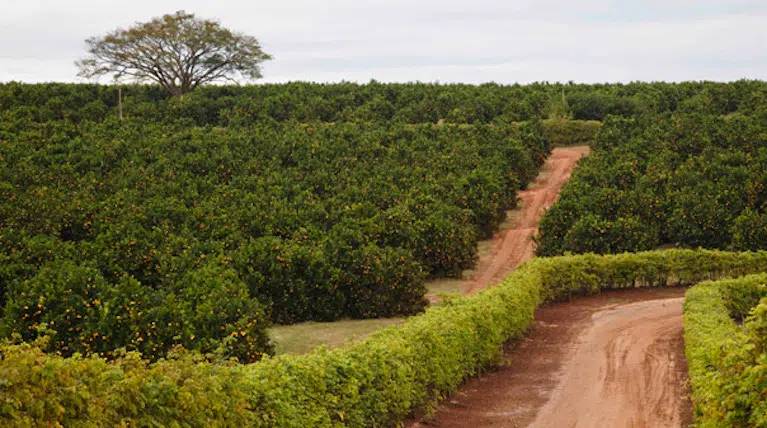
Agricultural Supply Chain
AGRICULTURE & INGREDIENTS
A huge focus in our supply chain work is related to our agricultural ingredients. This is an area where we have assessed greater risks as we work to gain a higher level of transparency across our supply chain. We rely on more than 5 million farmers to deliver our agricultural supply. Therefore, The Coca‑Cola Company has developed specific Principles for Sustainable Agriculture (PSA) to set expectations of our agricultural ingredient suppliers to address sustainability challenges specific to agriculture.
SUGAR SUPPLY CHAIN
As part of progressing our human rights work, in 2013 we committed to completing sugar supply chain studies focused on child labor, forced labor and land rights in key markets.
To date, 21 studies have been published and can be found here: Country Studies.
Of all studies published, Mexico and India (2019) have proven to be the most complex in terms of forced labor and child labor and will require a more prolonged, multi-stakeholder approach. To follow up on findings from certain studies, we developed and rolled out guidance on the principle of Free, Prior and Informed Consent with our land rights knowledge partner Landesa and, in 2019, published our Country Study Summary Report.
